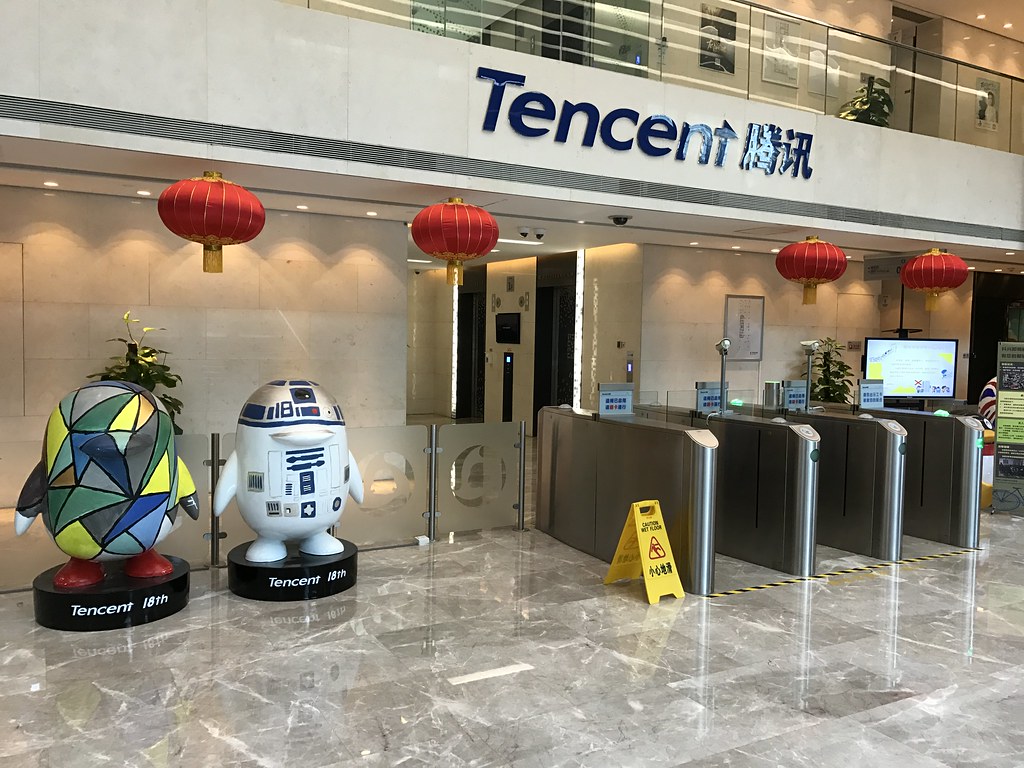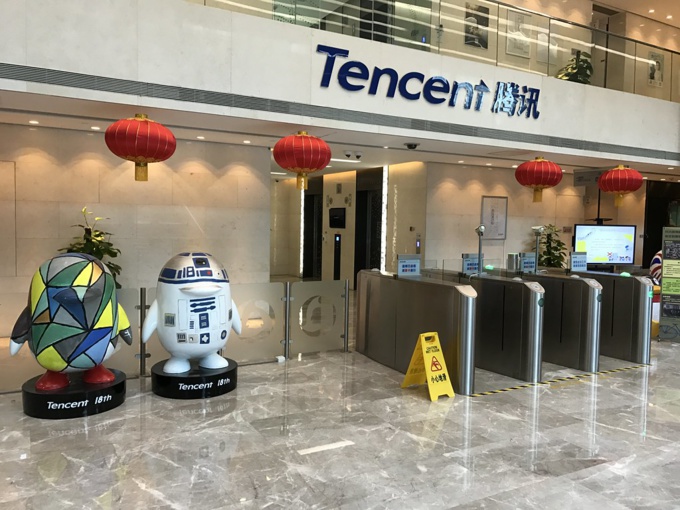The COVID-19 pandemic, which began in Wuhan China late last year, has caused unprecedented damage to businesses around the world. But in times of crisis, there are always those whose business, on the contrary, is booming. And while most European and American companies are calculating losses and thinking how to recover, Chinese technology corporations are preparing a large-scale expansion, to which, it seems, the virus is no hindrance.
Back in late April, the Alibaba Group announced its intention to spend about $ 29 billion - half of its earnings in 2019 - to expand its cloud technology division. Last week, it became known that as part of this expansion, the company intends to hire 5 thousand engineers who will work in Alibaba Cloud offices located in London, Frankfurt and Kuala Lumpur. Recently, Bloomberg sources said that Alibaba has leased an additional floor in the Hong Kong office center Times Square with an area of more than 1,500 square meters. Now the Chinese giant has four floors. Finally, the company announced that it intends to spend $ 283 million on global partnership projects next fiscal year.
A significant increase in revenue in the context of universal isolation was received by companies engaged in the field of online commerce, online entertainment and other digital services. Obviously, those who cover several of the above areas at once are obviously feeling the best. Alibaba is just one of these corporations.
In the midst of the COVID-19 pandemic, Alibaba boosted revenue by 22%, largely due to an increase in the number of online shoppers in China alone by 15 million people in just three months.
At the same time, as Maggie Wu, CFO of the company noted then, the cloud technology division made a special contribution to revenue growth, which Alibaba now intends to significantly expand. And even despite the 88% drop in net profit in the first quarter, Alibaba ended the fiscal year with a net profit of $ 19.5 billion.
Jack Ma’s company is not the only one of the Chinese IT giants who intends to seriously invest in expanding their business and international expansion. ByteDance, the owner of the popular TikTok mobile application, plans to increase the number of employees worldwide to 100 thousand by the end of this year. For now, about 60 thousand people work for the Chinese company, most of which are located in China. However, the popularity of the service abroad encourages ByteDance to expand its staff just outside of China. Recently it became known that over the past year the company tripled the number of employees in the United States. By the way, under the expansion of the staff, the company, among other things, has already rented offices in Hong Kong. Their area, however, is much more modest than that of Alibaba - only about 280 square meters. Besides, according to sources in the Financial Times, the owner of TikTok is now engaged in diversifying the business and sees financial services as one of its priority areas of development. It is unlikely that ByteDance will be able to occupy the mobile payment market in China, since there are already two giants: Alibaba and Tencent. Therefore, the company focused its efforts to obtain a license for the provision of digital banking services in Singapore. However, even there the company will have to fight for a license with the same Alibaba, as well as with the smartphone manufacturer Xiaomi, which, apparently, intends to launch its own payment system.
Tencent is also reorienting to foreign markets. Back in mid-2018, the Chinese authorities began actively regulating the gaming industry, banning a number of games that, according to the party leadership, could be harmful to Chinese teenagers. Then the actions of the Chinese authorities hit Tencent painfully: the company lost the opportunity to launch internal purchases for Chinese users in some of its games. In 2018, Tencent announced the creation of a new division - Cloud and Smart Industries Group, which is engaged in the development of cloud technologies and artificial intelligence. Last month, Tencent acquired a stake in Japanese game developer Marvelous for $ 65 million, and the company recently posted an announcement on the search for candidates for the post of director of mergers and acquisitions in Europe. So, Tencent intends to seriously conquer the European market.
source: ft.com, bloomberg.com
Back in late April, the Alibaba Group announced its intention to spend about $ 29 billion - half of its earnings in 2019 - to expand its cloud technology division. Last week, it became known that as part of this expansion, the company intends to hire 5 thousand engineers who will work in Alibaba Cloud offices located in London, Frankfurt and Kuala Lumpur. Recently, Bloomberg sources said that Alibaba has leased an additional floor in the Hong Kong office center Times Square with an area of more than 1,500 square meters. Now the Chinese giant has four floors. Finally, the company announced that it intends to spend $ 283 million on global partnership projects next fiscal year.
A significant increase in revenue in the context of universal isolation was received by companies engaged in the field of online commerce, online entertainment and other digital services. Obviously, those who cover several of the above areas at once are obviously feeling the best. Alibaba is just one of these corporations.
In the midst of the COVID-19 pandemic, Alibaba boosted revenue by 22%, largely due to an increase in the number of online shoppers in China alone by 15 million people in just three months.
At the same time, as Maggie Wu, CFO of the company noted then, the cloud technology division made a special contribution to revenue growth, which Alibaba now intends to significantly expand. And even despite the 88% drop in net profit in the first quarter, Alibaba ended the fiscal year with a net profit of $ 19.5 billion.
Jack Ma’s company is not the only one of the Chinese IT giants who intends to seriously invest in expanding their business and international expansion. ByteDance, the owner of the popular TikTok mobile application, plans to increase the number of employees worldwide to 100 thousand by the end of this year. For now, about 60 thousand people work for the Chinese company, most of which are located in China. However, the popularity of the service abroad encourages ByteDance to expand its staff just outside of China. Recently it became known that over the past year the company tripled the number of employees in the United States. By the way, under the expansion of the staff, the company, among other things, has already rented offices in Hong Kong. Their area, however, is much more modest than that of Alibaba - only about 280 square meters. Besides, according to sources in the Financial Times, the owner of TikTok is now engaged in diversifying the business and sees financial services as one of its priority areas of development. It is unlikely that ByteDance will be able to occupy the mobile payment market in China, since there are already two giants: Alibaba and Tencent. Therefore, the company focused its efforts to obtain a license for the provision of digital banking services in Singapore. However, even there the company will have to fight for a license with the same Alibaba, as well as with the smartphone manufacturer Xiaomi, which, apparently, intends to launch its own payment system.
Tencent is also reorienting to foreign markets. Back in mid-2018, the Chinese authorities began actively regulating the gaming industry, banning a number of games that, according to the party leadership, could be harmful to Chinese teenagers. Then the actions of the Chinese authorities hit Tencent painfully: the company lost the opportunity to launch internal purchases for Chinese users in some of its games. In 2018, Tencent announced the creation of a new division - Cloud and Smart Industries Group, which is engaged in the development of cloud technologies and artificial intelligence. Last month, Tencent acquired a stake in Japanese game developer Marvelous for $ 65 million, and the company recently posted an announcement on the search for candidates for the post of director of mergers and acquisitions in Europe. So, Tencent intends to seriously conquer the European market.
source: ft.com, bloomberg.com



















